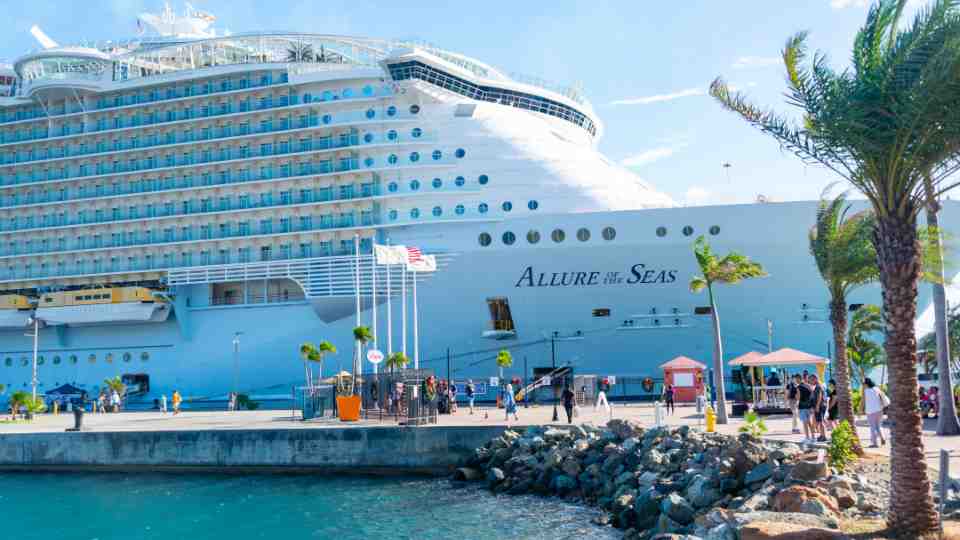Travel Health Tips for Cruise Holidays: Vaccinations & Common Illnesses
Cruise holidays offer an exciting and relaxing way to explore multiple destinations in one trip. However, being in close quarters with thousands of passengers, visiting multiple countries, and spending extended time at sea can pose health risks. From gastrointestinal infections to motion sickness, preparing properly can help you stay well and enjoy your holiday without disruption.
At Doncaster Chemist, we offer a full range of travel vaccines Doncaster residents may need before setting sail, along with essential travel medications such as motion sickness tablets, diarrhoea relief, and first aid essentials. This guide will help you prepare for a healthy and worry-free cruise.
Which Travel Vaccines Do You Need for a Cruise?
Cruises often stop at multiple destinations, so it’s important to check each country’s vaccine requirements. Some vaccines are highly recommended, even if they are not mandatory, to protect against infectious diseases that spread easily in close environments.
Essential Travel Vaccines for Cruises
Hepatitis A
Hepatitis A is a viral infection spread through contaminated food and water, making it a risk for travellers visiting regions with lower sanitation standards. It is recommended for most cruise passengers, particularly those stopping in Africa, Asia, South America, or the Caribbean. A single dose of the vaccine provides protection for up to a year, while a booster dose ensures long-term immunity.

Typhoid
Typhoid is a bacterial infection commonly found in areas with poor sanitation or unsafe drinking water, posing a risk to travellers in South America, Asia, and parts of Africa. A single dose of the vaccine provides protection for up to three years, making it an essential precaution for those visiting high-risk destinations.
Tetanus, Diphtheria & Polio (DTP)
Tetanus is a serious bacterial infection that can enter the body through cuts or wounds, making vaccination essential for active travellers. A booster dose is recommended every 10 years to ensure continued protection, especially for those engaging in outdoor activities or visiting remote areas.
Influenza (Flu Vaccine)
Cruise ships create an environment where flu spreads quickly due to crowded spaces and shared air conditioning. Getting the annual flu vaccine is a simple and effective way to reduce the risk of infection, ensuring a healthier and more enjoyable trip.
COVID-19 Vaccine & Boosters
Some cruise operators require proof of COVID-19 vaccination, ensuring passenger safety and minimising outbreaks. Even if not mandatory, staying up to date with booster doses helps reduce the risk of severe illness, providing added protection while travelling.
Additional Vaccines Based on Cruise Destinations
Hepatitis B – Recommended for longer trips or if you may need medical treatment abroad.
Rabies – If your cruise includes wildlife excursions or adventure activities.
Yellow Fever – Required for some African and South American ports (check entry requirements).
If you’re unsure which travel vaccines you need, Doncaster Chemist provides expert travel health consultations to ensure you’re fully protected.
Common Cruise-Related Illnesses & How to Prevent Them
Going on a cruise means spending time in close quarters with other passengers, increasing the risk of common travel illnesses. Knowing what to expect and taking preventive measures can help you stay healthy and enjoy your trip. Below are some of the most common illnesses on cruise ships and how to prevent them.
Norovirus (Stomach Bug) & Food Poisoning
Norovirus is one of the most common illnesses on cruise ships, spreading rapidly through buffets, communal areas, and shared toilets. It is highly contagious and can survive on surfaces for extended periods.
Symptoms include vomiting and diarrhoea, fever and stomach cramps, as well as nausea and fatigue.
To prevent your risk of infection, wash your hands regularly with soap and use hand sanitiser, avoid sharing drinks or utensils with other passengers, and drink bottled water in high-risk destinations.
To stay prepared, we recommend packing diarrhoea relief medication such as loperamide (Imodium) and oral rehydration salts to help restore lost fluids in case of food poisoning.
Motion Sickness (Sea Sickness)
Many passengers experience motion sickness due to the constant movement of the ship, particularly in rough waters. While some people adjust after a day or two, others may feel unwell throughout the cruise.
Symptoms include nausea and dizziness, headaches and vomiting, as well as fatigue and difficulty focusing.
Take motion sickness tablets (such as cinnarizine or promethazine) before boarding to prevent sickness. Wear acupressure wristbands, which help reduce nausea. Stay in the middle of the ship, where movement is less intense.
At Doncaster Chemist, we stock a range of motion sickness remedies, including tablets, patches, and herbal solutions to help keep you comfortable at sea.
Sunburn & Heatstroke
Many cruise destinations are located in hot, sunny climates, increasing the risk of sunburn and dehydration. Spending long hours on the deck or exploring onshore excursions can expose you to harmful UV rays, leading to severe sunburn, heat exhaustion, or even heatstroke.
Symptoms include red, painful, or blistering skin, dizziness and headaches, as well as excessive thirst and fatigue.
To protect yourself, apply high-SPF sunscreen regularly, especially after swimming. Drink plenty of water to stay hydrated. Wear a hat and light clothing to protect yourself from direct sun exposure.
We offer after-sun lotions, rehydration sachets, and cooling sprays to help soothe sunburn and prevent dehydration if you overheat.

Insect-Borne Diseases (Dengue, Malaria, Zika Virus)
If your cruise stops in tropical destinations, mosquito-borne diseases such as dengue fever, malaria, and Zika virus could be a risk. Since there is no vaccine for dengue fever, prevention is essential.
Symptoms include fever and body aches, skin rashes and joint pain, as well as nausea and fatigue.
Use DEET-based mosquito repellent to prevent bites. Sleep under mosquito nets in affected regions. Take antimalarial tablets if recommended for your destination.
At Doncaster Chemist, we provide mosquito repellents, bite creams, and malaria prevention tablets to help you stay safe from insect-borne illnesses. Reach out today to find out more.
Get Your Travel Vaccines and Medications Before Your Cruise
A cruise should be a relaxing and enjoyable experience, and the last thing you want is illness ruining your trip. By getting the right travel vaccines Doncaster Chemist offers, along with essential travel medications, you can stay protected and prepared.
Book your travel vaccination appointment today at Doncaster Chemist and set sail with peace of mind!

This blog was written on behalf of Doncaster Chemist by Pharmacy Mentor.

